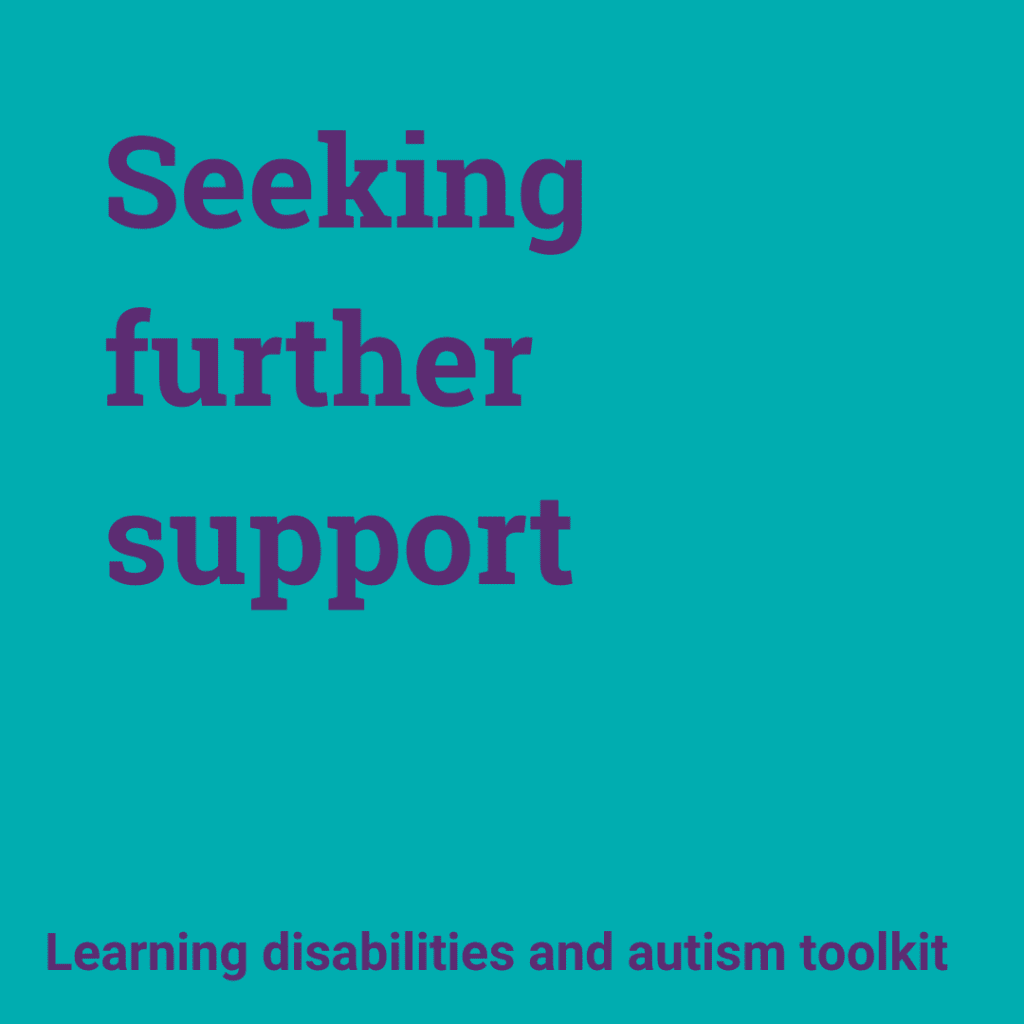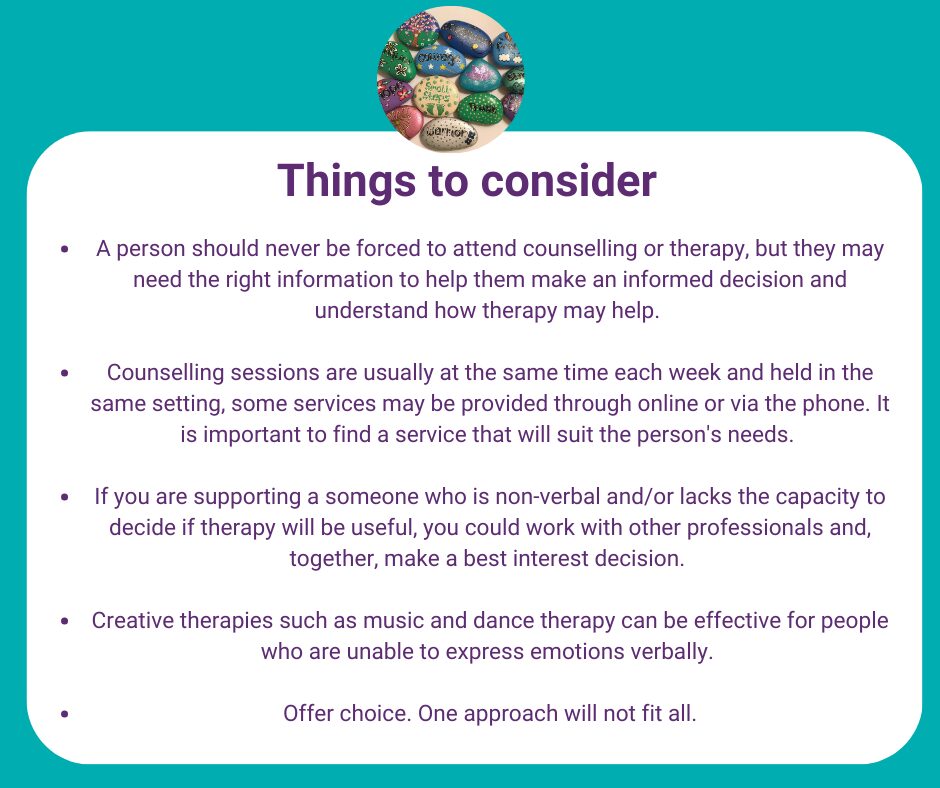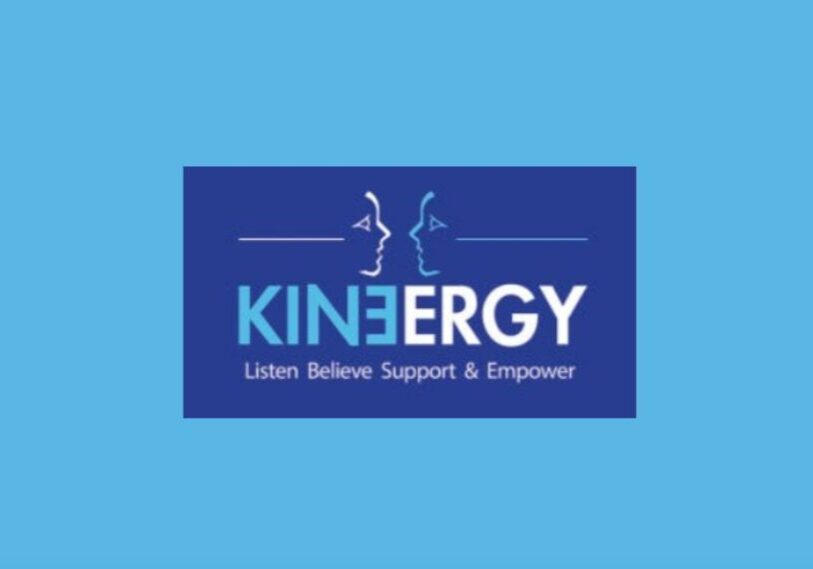
Seeking further support – healing and recovery
When seeking further support or signposting, its important to remember that different things work for different people. Always try to offer the person you are working with options on what might suit them best.
What is therapy?
The British Association for Counselling and Psychotherapy (BACP) describes therapy as a safe and confidential space to talk to a trained professional about issues and concerns. A therapist will help to explore thoughts, feelings and behaviours.
Finding and accessing support
There are many different types and methods of counselling and therapy. The choice of therapy may be limited based on where and how it is accessed.
If you think the person you are supporting would benefit from counselling or psychological therapy, you could:
- Speak to their GP about psychological therapies referrals
- Find a local charity that can provide counselling services or psychotherapy
- Contact your local Community Learning Disabilities and or Autism service
- Refer to their local specialist sexual violence service for a support assessment.

Finding support in your local area
You can find support in your local area by looking on the Rape Crisis England and Wales website.
The Survivor Pathway is a guide to the specialist sexual violence services across the South West. It is for professionals, survivors and concerned others.
Respond is a national charity providing therapy and specialist support services to autistic people and/or people with learning disabilities who have experienced abuse, violence, or trauma. Respond provide psychotherapy services, specialist support and peer support services.
Helplines
There are local and national helplines where people can talk about what they have experienced or how they are feeling.
Helplines can provide valuable support while someone is waiting to access therapeutic services.
SARSAS helpline
We provide helpline, live chat and email support 5 days a week for anyone living in Bristol, Bath & North East Somerset, North Somerset, Somerset and South Gloucestershire.
More information can be found on our website.
Rape and Sexual Abuse Support Line operates 24 hours a day 7 days a week
Call free on 08085002222 or online chat.
More information can be found on the website.
Survivors Trust National helpline
National free helpline that operates 7 days a week. Call free on 0808 801 0818 or join a live chat.
More information can be found on the website.
Useful resources
More information
The latest from our news and blogs

Be the change: how to be an Active Bystander
We can all be bystanders. Every day events unfold around us. At some point, we will register someone in danger. When this happens, we can decide to do or say something (and become an active bystander), or to let it go (and remain a passive bystander).

Kinergy closure statement
We are deeply saddened by the closure of Kinergy, an organisation that has provided invaluable support to survivors of sexual violence for nearly 30 years.

The power of creativity in healing: songs of survival
Recently, two people reached out to us independently, each having recorded a song about their personal experiences of sexual violence. Their powerful and deeply moving songs serve as a testament to resilience, and we’re honoured they asked us to share their work.










